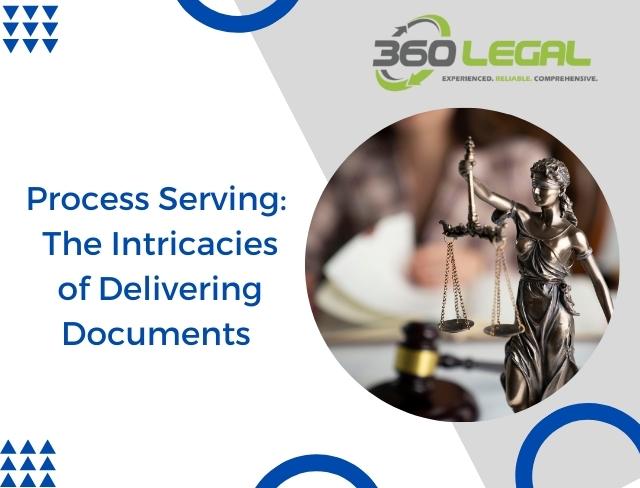Why Timely and Reliable Process Serving Is Critical for Lawful Success
Why Timely and Reliable Process Serving Is Critical for Lawful Success
Blog Article
The Role of Process Serving in Ensuring Legal Conformity
Process serving is a crucial element of the legal framework that guarantees all parties receive timely and appropriate notification of lawful activities. By recognizing the details of procedure offering, including its approaches and lawful demands, stakeholders can appreciate how it fortifies the judicial system.
Importance of Legal Alert
Lawful notice functions as an essential pillar in the judicial process, ensuring that all parties entailed are managed the possibility to react and safeguard their passions. This principle is crucial to maintaining the integrity of lawful procedures, as it supports the right to due process, a keystone of autonomous legal systems. When entities or people are effectively informed of lawsuits versus them, they can adequately prepare their protection, thus promoting justness and transparency in the judicial sector.
Additionally, legal notification promotes educated decision-making among parties, permitting them to analyze their choices and potential results. Without proper notice, litigants might be deprived of their civil liberties, resulting in unfair rulings or default judgments. This can eventually undermine public self-confidence in the legal system and its capability to supply equitable resolutions.
On top of that, the accurate and timely distribution of legal alerts is important for the efficient functioning of the courts. It decreases delays and makes sure that cases advance via the judicial system without unnecessary barriers. Sticking to the protocols surrounding lawful alert is not just a legal obligation however likewise an essential component in fostering a efficient and reasonable legal procedure.
Process Serving Techniques
Process serving includes numerous techniques designed to ensure that lawful documents are supplied to the appropriate parties in a timely and effective manner. One of the most conventional method is individual service, where a process server physically hands the documents to the private called in the legal action. This method is commonly preferred because of its reliability, as it assures that the recipient is straight educated.
An additional typical technique is replaced solution, which permits documents to be entrusted someone of appropriate age or discernment at the recipient's home or place of business. This approach is made use of when individual service is unwise, guaranteeing that the individual still receives notification.
In addition, solution by mail is allowable in particular jurisdictions, where papers are sent via signed up or licensed mail, typically needing a signed receipt to confirm distribution. Some territories also allow service using electronic means, such as email or fax, particularly in instances involving company entities.

Lawful Needs and Compliance

Key legal needs frequently consist of the requirement of serving files in a prompt manner, making use of authorized individuals, and giving appropriate notice to the party being offered. Lots of jurisdictions need that process servers be certified or registered, guaranteeing they are well-informed regarding local laws and treatments. Certain documents might require added review formalities, such as registration or a specific approach of delivery, to be considered legitimate - Process Serving.
Comprehending these subtleties is important for legal professionals and procedure web servers alike. Failure to comply with these legal needs can lead to obstacles in court, potentially dismissing the situation or postponing proceedings.
Repercussions of Improper Solution
Incorrect solution of lawful files can have significant effects that expand beyond simple procedural missteps. When lawful papers are not offered correctly, it can result in delays in lawful process, potentially impeding an event's ability to effectively respond or protect their situation. This can lead to negative judgments or terminations, ultimately influencing the end result of my site the lawful matter.
Furthermore, improper service may bring about enhanced legal expenses, as celebrations might need to initiate added proceedings to fix the solution issue. Courts commonly require rigorous adherence to service procedures, and failure to comply can weaken the stability of the judicial process. In some instances, a party might lose the right to seek their insurance claims or defenses due to disagreement with service requirements.
Furthermore, improper service can create confusion pertaining to commitments and timelines, creating additional problems in the situation. It may additionally prompt activities or appeals to reevaluate, prolonging the resolution of disagreements. In recap, the effects of improper service are significant and can dramatically interfere with lawful process, highlighting the need for meticulous conformity with established solution methods.
Benefits of Specialist Process Servers
Involving specialist process servers provides countless benefits that can enhance the effectiveness and efficiency of legal proceedings. Firstly, these professionals have specialized training and know-how in the nuances of legal documents and solution laws, guaranteeing conformity with administrative needs. This expertise decreases the threat of improper service, which can cause costly delays or perhaps situation dismissal.
Second of all, expert process servers usually have actually developed procedures and systems to document and track solution efforts, providing customers with timely updates and detailed records. This transparency promotes depend on and allows lawful groups to plan effectively.
Furthermore, hiring a specialist process-server can conserve valuable time for lawyers and their team (Process Serving). By outsourcing this important job, attorneys can concentrate on case prep work and client check my source depiction, inevitably boosting their overall performance
Moreover, specialist procedure servers are skilled at taking care of tight spots, including evasive offenders, which may need perseverance and tact. Their experience in managing such obstacles boosts the possibility of effective solution.
Conclusion
In verdict, procedure offering is vital for keeping legal compliance and upholding the principles of due process. Ultimately, the function of professional process servers is crucial in enhancing public confidence in the stability and efficiency of legal proceedings.
Process offering is a necessary element of the legal framework that makes sure all events receive prompt and ideal alert of legal actions. Sticking to the methods surrounding lawful notice is not only a legal commitment but additionally an important part in cultivating a fair and effective legal process.
The most traditional technique is personal solution, where a procedure server literally hands the files to the specific called in the lawful activity. When legal papers are not offered correctly, it can result in delays in legal procedures, potentially impeding an event's capacity to properly react or safeguard their instance.In final thought, procedure serving is important for preserving lawful compliance and promoting the principles of due process.
Report this page